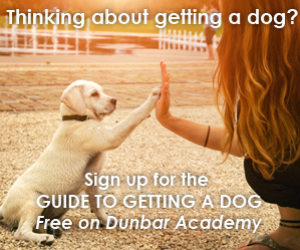Bringing Home Bella
I recently had the great fortune to be a part of an exciting moment in a client’s life. I traveled with them to pick up their brand new puppy and was there to supervise the first meeting between the pup and the client’s resident dog. Nothing could be more exciting!
I get a lot of calls about how to choose a second dog, how to prepare for it and how to handle the introductions. Many people want to spend a lot of time talking about the dog they’re planning to add to their family. They are often surprised to find that I am far more interested in talking, at length, about the dog they already have.
Let’s take the client’s I traveled with, for example. They already had a 1.5 year old, spayed, female Goldendoodle named Rozee. If I’d never met them or their dog before, I would be asking all kinds of questions about their dog’s early socialization and training, continued socialization and training, energy level, behavioral issues, play style, reaction to other dogs and especially experience and reactions to other dogs being in their home.
I already knew the answers to these questions in this case, and I didn’t have the slightest bit of concern. The owners didn’t know it, but they’d been preparing for the introduction of their second puppy since their first dog was a pup. Rozee had attended puppy and adolescent classes. Rozee had come to daycare. Her owners took her to lots of public places, held several play dates with other dogs and were consistent (and patient) with her training.
We knew a lot about Rozee’s social skills. We knew that she’d never met a person or a dog that she didn’t like. We knew she was still a bit clumsy and very exuberant. We knew that she wasn’t easily offended and had no problem sharing. We also knew that she needed a high-energy partner in crime to keep up with her lust for life! So, they decided on another Goldendoodle puppy, named Bella.
I find that so many clients looking for a second dog seem to completely overlook how important the first dog is in that decision. If your dog has not been thoroughly socialized and you haven’t built a good training relationship with him, it’s probably not a good idea to add another dog to the scene. A second dog is not the way to socialize the first dog. It is unfair, in my opinion, to bring a dog into a home with a resident dog who doesn’t want a roommate.
If you really want a multi-dog household, the key is to put first things first. You must prepare the first dog by helping him develop good social skills and basic manners. Your first dog should have a good relationship with you that includes attention, recall, sit, and loose leash walking at a minimum. If your current dog is yanking you down the street, never looks at you and doesn’t understand a word you’re saying, how in the world will you walk down that street with an additional dog?
As far as the first meeting between potential doggy roommates goes, how will you know if your dog likes the new dog if you’re not familiar with his greeting and play styles? It’s so much easier to interpret what’s going socially if you’ve seen your dog in many, many social situations before. With Rozee, we knew that her greeting style consisted of rushing in and pouncing on her new friends (and everyone is a friend in Rozee’s eyes). Because of this, we planned for protection of the puppy and extra control of Rozee via a leash. Had we not known this, the whole interaction might have been very scary for us and the new puppy.
Some dogs are growly when they first meet, or growl a lot when they’re playing. Some dogs are stiff and slow to make friends, being more particular about who they will play with. Sometimes a slow moving, laid back dog is energized by a more playful dog, but sometimes this mix just causes tension. Dogs of similar ages can have the potential for more arguments as they become sexually mature, some do fine and sometimes an age difference keeps things calmer. There are lots of considerations that have nothing to do with what kind of dog the humans would like to have.
Most importantly, however, is that a second dog cannot and should not fill any of the voids that human owners have left open. A second dog cannot do the work of socializing your first dog. That’s your job. A second dog cannot train your first dog, cannot fix behavioral problems and cannot provide for all of your first dog’s needs for companionship. These are all your responsibilities and should be firmly in place before adding another dog to the home.
Rozee and Bella are getting along fabulously! Bella will start puppy class this week (she already knows sit, down and stand), and I have no doubt that she will receive the same socialization and continued training as Rozee has. Rozee will be ready to take her Canine Good Citizen test very soon.




